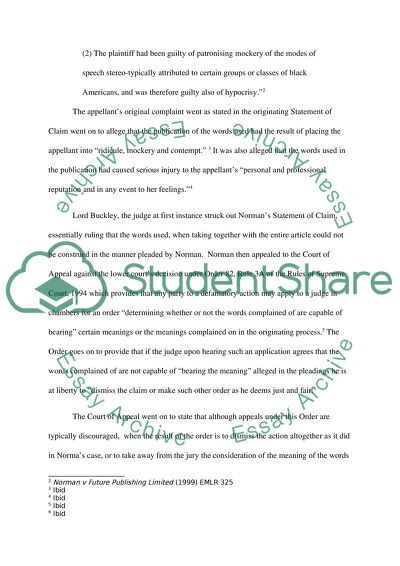Cite this document
(“Norman v Future Publishing Limited Essay Example | Topics and Well Written Essays - 1500 words”, n.d.)
Retrieved from https://studentshare.org/law/1544758-tort-coursework-on-defamation
Retrieved from https://studentshare.org/law/1544758-tort-coursework-on-defamation
(Norman V Future Publishing Limited Essay Example | Topics and Well Written Essays - 1500 Words)
https://studentshare.org/law/1544758-tort-coursework-on-defamation.
https://studentshare.org/law/1544758-tort-coursework-on-defamation.
“Norman V Future Publishing Limited Essay Example | Topics and Well Written Essays - 1500 Words”, n.d. https://studentshare.org/law/1544758-tort-coursework-on-defamation.


